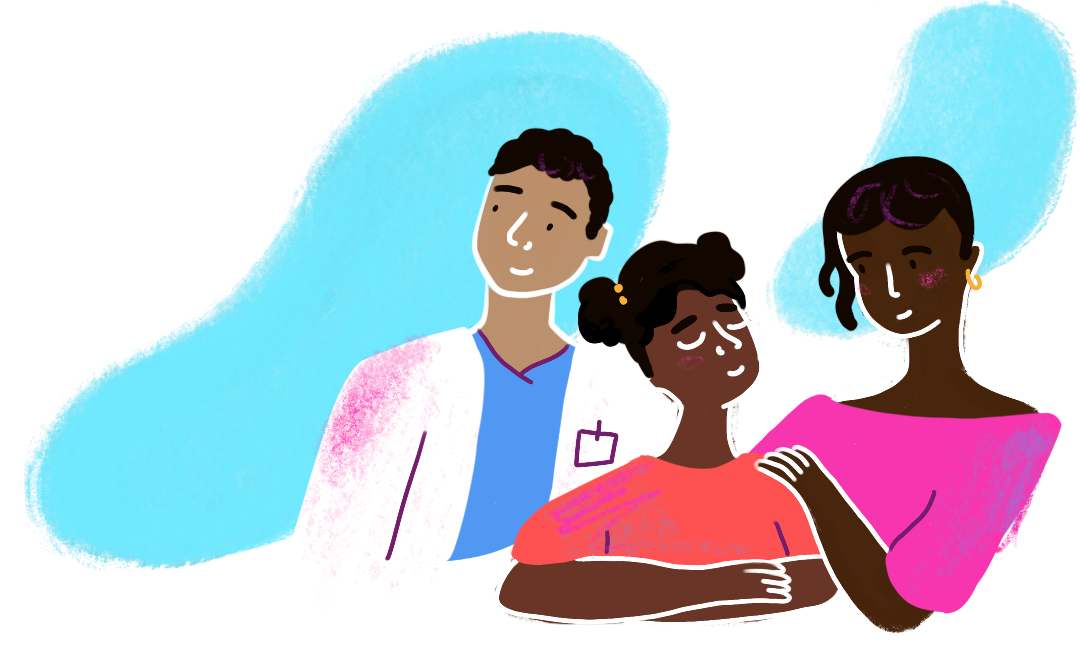How to use open notes for safer care
Open notes can help improve patient safety and quality of care.

After a medical visit, doctors, nurses, and other health care providers write notes that summarize important information about you. These notes become a part of your medical record. When a note is shared with you, it becomes an “open note.”
You can access your medical record using your health care system’s patient portal. Through the portal, you can request appointments, message your health care team, and view your open notes. If your doctor or nurse does not use a web portal, you can request a digital or paper copy of your notes.
Medical care can be complex and involve several different healthcare providers working together to care for you. All of the different clinicians who care for you—doctors, nurses, social workers—make up your healthcare team. Open notes can help you make sure your health care experiences are safe with all of your different clinicians.
Patient safety is preventing patients from being harmed while receiving healthcare. Healthcare organizations focus on different kinds of patient safety, such as diagnostic safety, medication safety, and “safety equity” – working toward the safest care for every patient.
Patients and families are also part of their own healthcare team. You know yourself and your symptoms best. You have unique and valuable information about the details of your health during and between different healthcare encounters. This information is important to safe care and may not be known by all healthcare providers.
You can work together with your healthcare providers to help achieve the safest care possible.
How do open notes improve patient safety?
“Diagnostic error” is the failure of a healthcare provider to explain a patient’s health problems accurately and promptly, or the failure to share those explanations with their patient.
- Diagnostic errors are common, costly, and harmful.
- Diagnostic errors are estimated to affect 12 million Americans each year, and are a worldwide safety priority.
- Missing or delayed tests, results, or referrals are an important cause of delays and errors.
Many factors can lead to delayed tests, results and referrals. For example, healthcare visits are often rushed and may feel overwhelming. Patients may have trouble remembering all the next steps. Experts estimate that 40-80% of information shared with patients during a doctor’s visit is forgotten or remembered incorrectly. In addition, doctors may forget to order tests or referrals, or to communicate with patients about the results.
People who read their open notes report they better understand the reason for medical tests and referrals and are more likely to get them done.
You can ask your doctor if you have a question about a test or referral in your note. If a test or referral is missing from your note, you can remind your doctor. Working toward timely tests and referrals are one way people can help their healthcare providers make accurate and prompt diagnoses.
Open notes engage patients as safety partners who can identify errors in their medical records.
Subtitles are available for this video in English and Spanish. To view subtitles, click the Settings icon , click Subtitles/CC , then choose your preferred language.
Medical records can have errors that are copied electronically by clinicians from one visit note to another. Many patients have spotted mistakes in their medical records. Some mistakes may not be important (such as misspellings) while others may be very important. Examples of important mistakes include:
- listing the wrong medication
- wrong information about your medical history
- listing the wrong side (left vs right) before a planned surgery
While doctors must write and review many notes every day, patients and care partners only look at their own notes. They can catch and report errors before they lead to serious consequences.
If you find an error in your medical record that you feel is important—not a simple misspelling —you should reach out to your care team and let them know about it. Corrections that do not affect your immediate care, such as the date of a past surgery, can be brought to the next visit. Corrections that could affect your immediate care, such as a note that states there is no “chest pain” when in fact you do have chest pain, should be brought to your clinician’s attention immediately.
If you are not sure what to do, reach out to ask your care team.
Patients who read notes say they feel more involved in decision-making with their doctors. This means that doctors take into account what matters most to patients when suggesting next steps in their care plan.
Relationships that are grounded in trust are stronger. Open notes help to build trust because patients often feel that the doctor is sharing information and there is nothing to hide. When patients feel more comfortable speaking up about their concerns they are more likely to feel they are on the “same page” with their healthcare team. These behaviors, grounded in strong relationships, set the stage for safe care.
Open notes engage patients as safety partners, which enhances trust and the doctor-patient relationship.
Subtitles are available for this video in English and Spanish. To view subtitles, click the Settings icon , click Subtitles/CC , then choose your preferred language.
Did you know . . .
- 97% of patients and care partners reported that trust in their doctor was greater or the same after reading at least one open note.
- Patients who read more open notes reported better collaboration and teamwork with their doctors.
Reading your notes can help you understand why and how you should take prescribed medications.
Not taking medications as directed can have serious effects on your health. For example, taking the wrong dose, or forgetting to change a medicine or to start a new medicine as recommended by your doctor, can have negative or even dangerous effects on your health.
- help them understand the reason for the patient’s tests and referrals.
- help them to better manage the patient’s medications.
- keep them informed and allow them to remind the patient about next steps.
- help them understand what happened during a visit (such as a change in medication, new tests, or a change in the care plan) if they were unable to attend.
In general, care partners report significant benefits from reading the notes that patients share with them even more than patients themselves.
Patients who are marginalized by society—including less formally educated individuals, non-English speakers, people of color and others—may also be at risk for delays or errors in care due to language barriers, not being able to advocate for themselves, or other disparities in the healthcare system.
Some patients facing healthcare disparities may especially benefit from open notes. For example:
- Although notes are not routinely available in other languages yet, patients who speak a language other than English may prefer to review the visit with an English-speaking relative or trusted friend.
- Patients from marginalized groups were more likely to report that reading notes is extremely important to help them understand their health conditions, feel informed about their care, and participate in healthcare decisions.
- Nonwhite patients and families, or those with high school education or less, report that reading notes helped them to complete tests, become more active in their healthcare, and take medications as prescribed.
These are just some examples of how you can use your unique knowledge and your notes to be an active part of your healthcare team, and to help your clinicians provide safe care. View a more detailed FAQ about how to get the most out of your notes here.


 OpenNotes is a global movement. We encourage and study open and transparent communication in health care. We work with patients, families, doctors, nurses, social workers, and other clinicians. Our work is not-for-profit, and we are supported by grants and donations. To support OpenNotes and to learn more, visit the
OpenNotes is a global movement. We encourage and study open and transparent communication in health care. We work with patients, families, doctors, nurses, social workers, and other clinicians. Our work is not-for-profit, and we are supported by grants and donations. To support OpenNotes and to learn more, visit the 
